Last week during San Francisco Climate Week 2025, I had the privilege of co-hosting an event that felt like a quiet catalyst in a noisy world.
Alongside my friends at LabStart, Vibrant Data Labs, and Reciprocal, we convened a room full of climate founders, funders, and builders to explore one deceptively simple question:
What does it actually take to unlock breakthroughs in climate innovation & bring solutions to market today?
Spoiler: it’s not just money. (Though yes, that helps too.)
It’s capital, expanded beyond the financial definition, into two key forms: intellectual capital (playbooks, frameworks, and hard-won insight) & social capital (networks, co-investors, corporate allies, and brand equity).
It’s timing: the precise moment in the arc of innovation when the right support bends a concept’s path from lab bench to market force.
It’s community: the rare kind built on aligned incentives and long-term trust amongst traditionally siloed stakeholders.
Mapping the Gaps
We kicked off our morning event with data-driven insights from Vibrant Data Labs, with Maggie Cutts presenting an overview of the climate investing landscape and where early-stage climate funding still falls painfully short.
Not surprisingly, today's political and economic headwinds are creating both acute pressures and unexpected openings.
The climate innovators we need most are often the ones facing the deepest capital gaps, precisely because they are tackling systems-level challenges, not incremental tweaks.
It was a good reminder that when traditional funding models falter, catalytic capital isn't a luxury; it's a necessity to course correct imperfect market forces.
Cross-Pollinating Perspectives: Panels on Blended Capital & Emerging Strategies
Building on the data-driven framing, we then opened up the floor to two dynamic panel conversations, each offering a cross-section of the ecosystem's most thoughtful operators.
First, in Blending Capital Sources for Climate Innovation, moderated by LabStart’s Deepa Lounsbury, we explored how philanthropic dollars, corporate grants, venture capital, and earned revenue can and must be braided together to accelerate real-world climate solutions.
Hearing from leaders like Alex Wilkins (Cisco Foundation), Jean Shia (Autodesk Foundation, Hamilton Perkins (HP Collection), and Lyndsey Boucherle (Better Ventures), it became clear: No single capital stack will solve climate, but collectively they can achieve the capital efficiency and risk coverage required to bring frontier solutions to market.
It’s the creative blending, at the right stage, with the right partners, that gives breakthrough ideas a chance to survive and scale.
Next, in Emerging Strategies for Climate Momentum, moderated by Daniel Gajardo of Reciprocal, we zoomed out to the system level.
Alicia Seiger (Chan Zuckerberg Initiative / Stanford), Abigail Mathieson (Breakthrough Energy), and Kyle Cordova (Aquaporo) joined Dani in sharing frontier insights on how the next phase of climate innovation will be shaped, not by any one solution or sector, but by platform-level thinking, strategic capital deployments, and a willingness to pioneer new models of collaboration.
These panels offered something rare: not just diagnosis, but direction.
A collective sense that yes, the gaps are real but so are the seeds of transformation.
Founder Firesides: From Small Bets to Massive Impact
One of the highlights of the morning for me, (and yes, I’m biased as both a former founder and the moderator) was leading our Founder Perspectives sessions, where we heard directly from the frontline innovators: Alex Brown & Daria Balatsky of Alga Biosciences & Taylor Zehren of Wasted*.
Their perspectives were both inspiring and grounding, not just stories of scaling product lines or hitting early traction milestones, but the pivotal moments when a timely introduction, an early believer, or right blend of financing changed the trajectory.
Bottleneck Bingo & Beyond
At Cool Climate Collective, we developed a simple framework we dubbed Bottleneck Bingo, to systemically map where ventures get stuck, and how strategic injections of support (capital, technical expertise, networks) can unlock the next level.
We had an amazing line-up of early-stage founders bravely join us as bingo participants who shared their honest perspectives about being a climate tech founder in the current zeitgeist:
Joseph Kao of Infinion Technology, Brian Worfolk of Lukera Energy, Guillermo Gutierrez of EcoMercantile, Meghan Wood of Raya Power and Satpal Kaur of Unboxed, each embodied resilience, resourcefulness, and a deep commitment to the long game.
I asked them: What’s breaking? What’s working? Where’s the ecosystem still falling short?
Our goal from the Bottleneck Bingo insights is to conspire with founders & co-investors against the inertia that slows climate innovation.
It’s not always glamorous. It's not always headline-grabbing, or even venture-backable. But it’s how we believe system change actually happens: incrementally, consistently, and collectively.
Sometimes the ripple effects from these initiatives move faster than expected, sometimes it’s slower, like cultivating policy resiliency and seeding other builders with white papers.
Either way, it’s about playing the long game for systemic impact.
Humor as a Systemic Defense
A few people approached me after my session asking if I could share the comics I had created to guide our audience through Bottleneck Bingo.
Sharing the comics below, because if a picture is worth a thousand words, a comic might offer a glimpse at the visceral truth floating in the ether of our times...
In the spirit of Mel Brooks, who famously said, "Humor is just another defense against the universe,"
I personally believe humor has a place even, especially, when facing the gravest challenges.
I didn't design these comics to just be light-hearted. They’re a mirror for the very real, often absurd obstacles climate founders face: fundraising under climate censorship headwinds, building resilience in brittle supply chains affected by trade policies, navigating slow-moving institutions while racing against physics.
The reality is: this is a difficult time.
Whether you’re a founder raising your round in a politicized climate narrative, or an Emerging Manager presenting a differentiated thesis in a risk-averse market, it’s tough out there. And yet, we don’t have the luxury of waiting for easier conditions.
As the realities of climate compound, the cost of inaction is now outpacing the cost of progress. The window for action is closing faster than the comfort zone of conventional thinking.
As I was reminded during another standout conversation later in the week, climate financial risk is now a fiduciary duty.
If you are a steward of capital today, ignoring systemic climate risk isn’t just negligence. It’s a misallocation of capital and opportunity.
I aimed for the comics to be a small nudge, a humorous invitation to confront reality head-on, map the risks and bottlenecks clearly, and move with greater urgency, creativity, and alignment.
The Seedlings of Catalytic Conversations
What struck me most about our gathering and other SF Climate Week events wasn’t just the panels or data presentations. It was the side conversations, the off-mic, breakfast talk exchanges, where sparks of new ideas were quietly ignited.
Catalytic conversations: those rare moments when different forms of capital: intellectual, social, financial; collide in just the right way to seed something new.
Some conversations hinted at nascent partnerships, others at collaborative pilot projects. Others surfaced entirely new problem statements, the kind you can feel lodging into your mind, demanding to be explored.
As we head into the weeks ahead, many of these seedlings are already germinating and I hope to see a few of them flourish into real-world initiatives over the coming months. New funding models. New field-building collaboratives. Maybe even new ventures born from unexpected collisions.
This is how ecosystems evolve: not through grand declarations, but through catalytic collisions and patient cultivation.
Innovation as a Collective Act
At the heart of it all, this event reinforced a simple but profound truth:
We don't win these battles alone.
Climate innovation is inherently a collective act, a convergence of founders, funders, researchers, policy shapers, and community builders, each bringing their piece of the puzzle.
The spirit of the morning felt less like a transaction and more like a quiet conspiracy toward a shared future; one where catalytic capital doesn't just fund companies; it accelerates ecosystems.
And if I have one takeaway from SFCW 2025, it’s that the future will belong to the coalitions that can conspire wisely, invest patiently, and build resiliently.
Until next time, let's keep pushing forward, together. 🌍
This post originally appeared on LinkedIn.


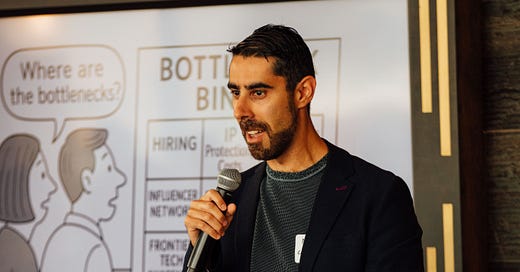


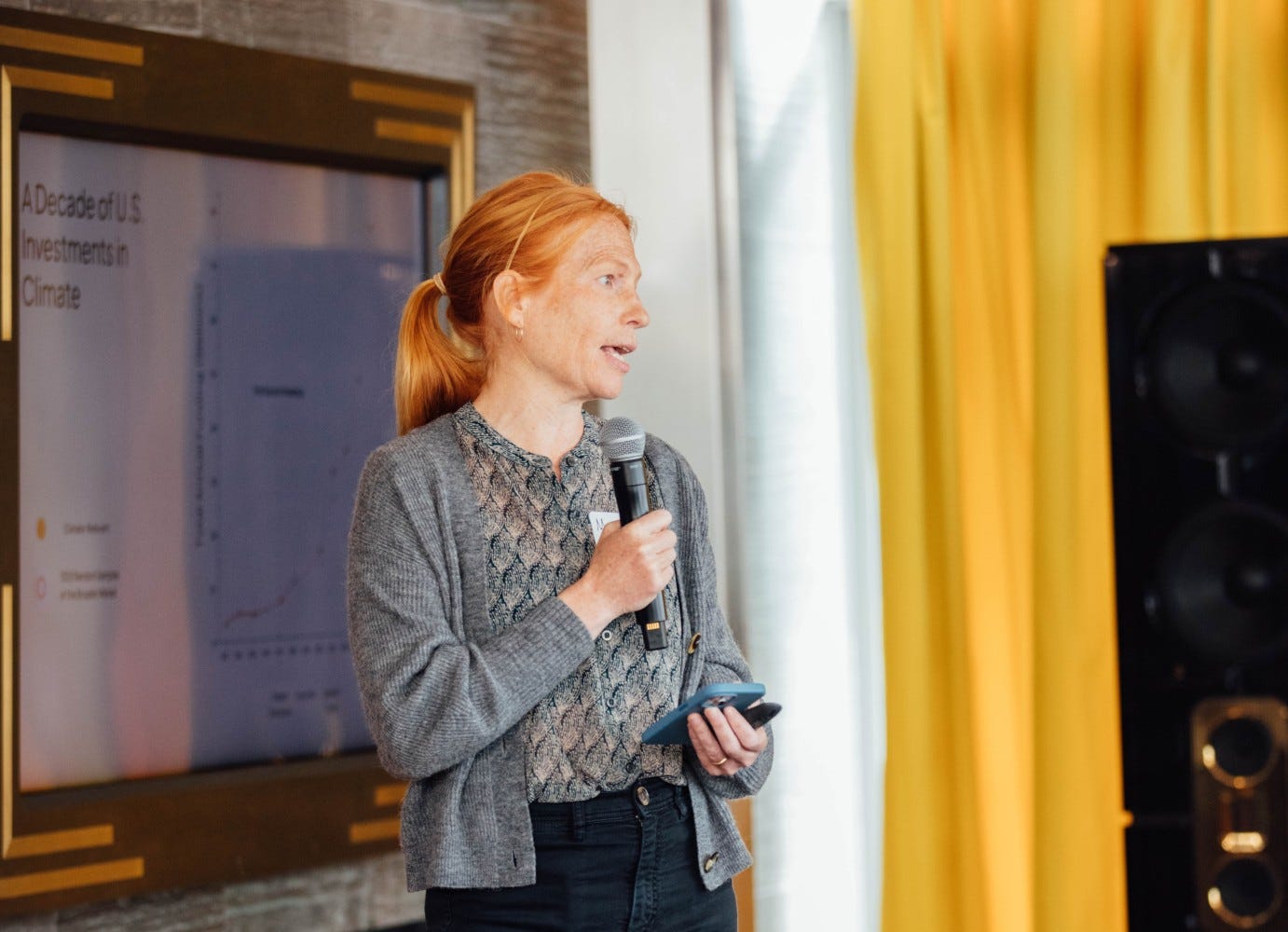
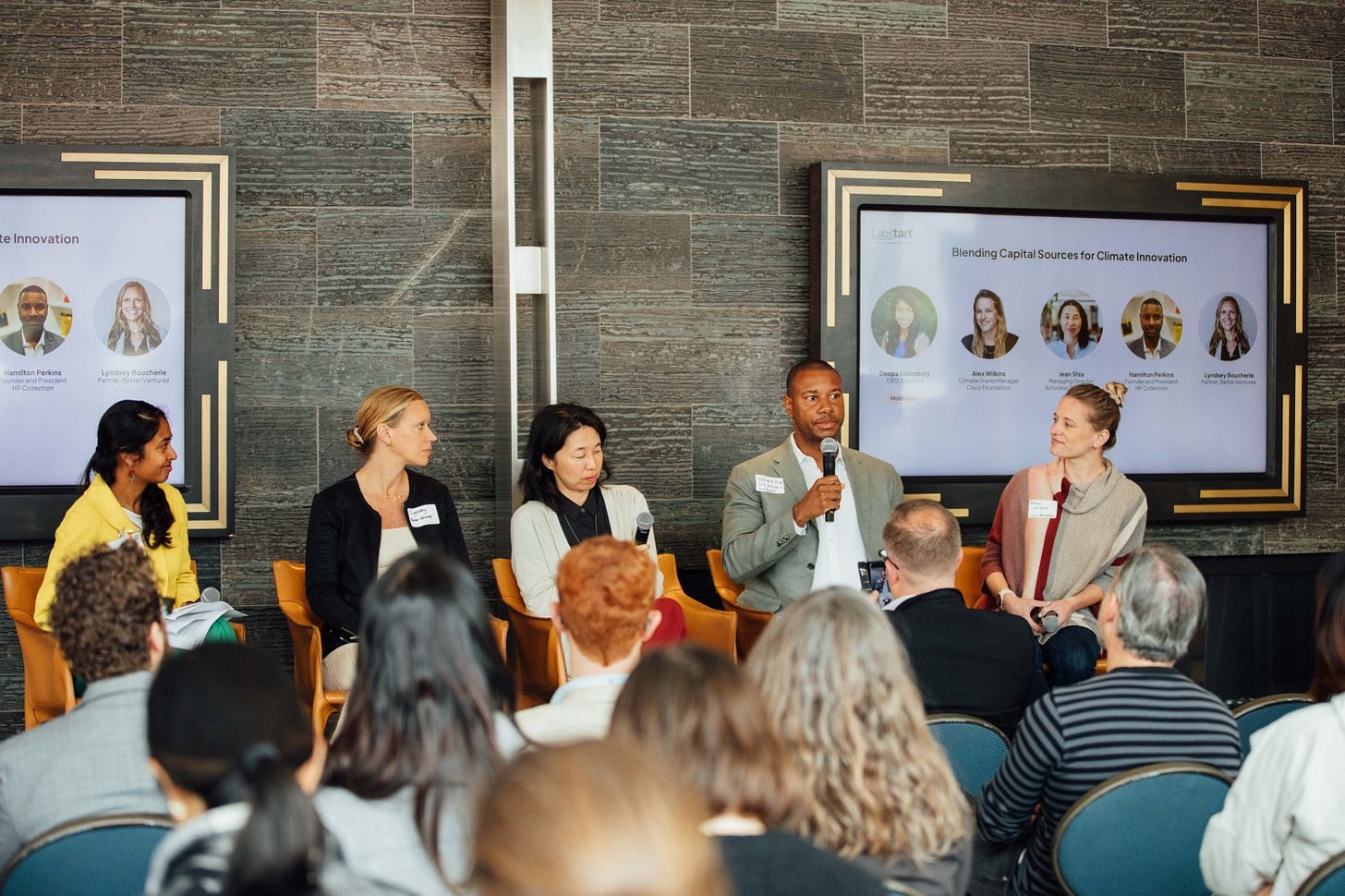
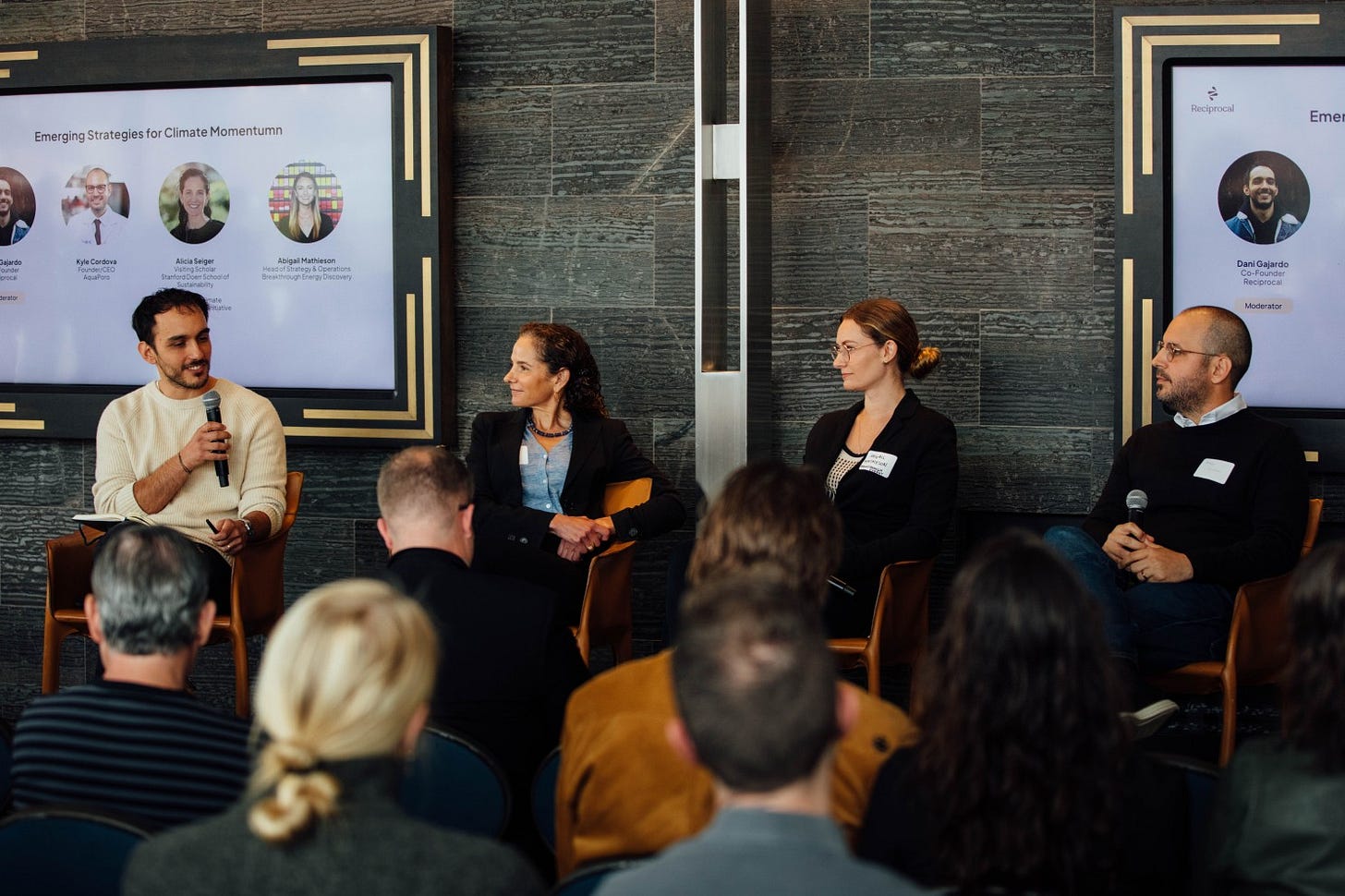
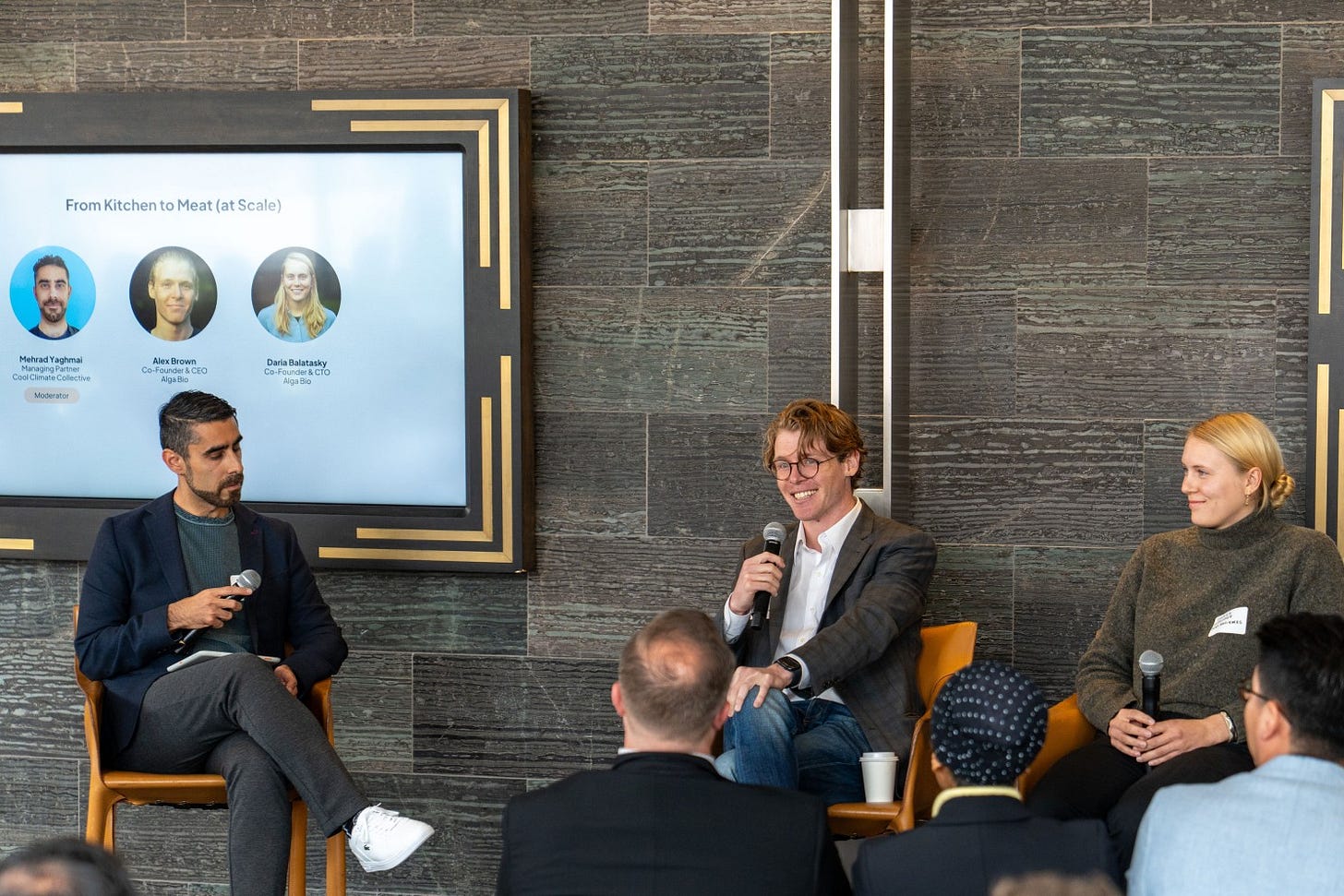
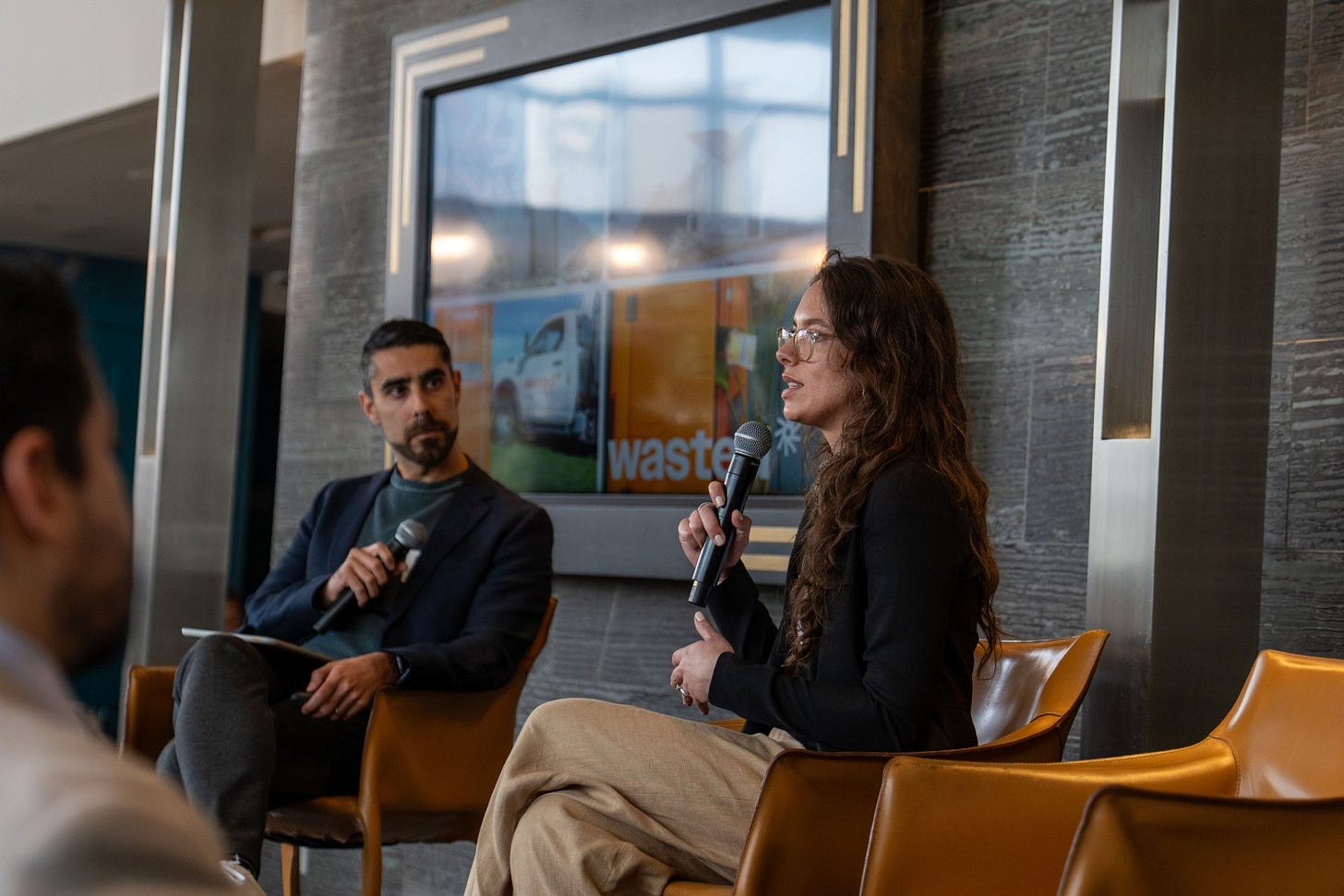

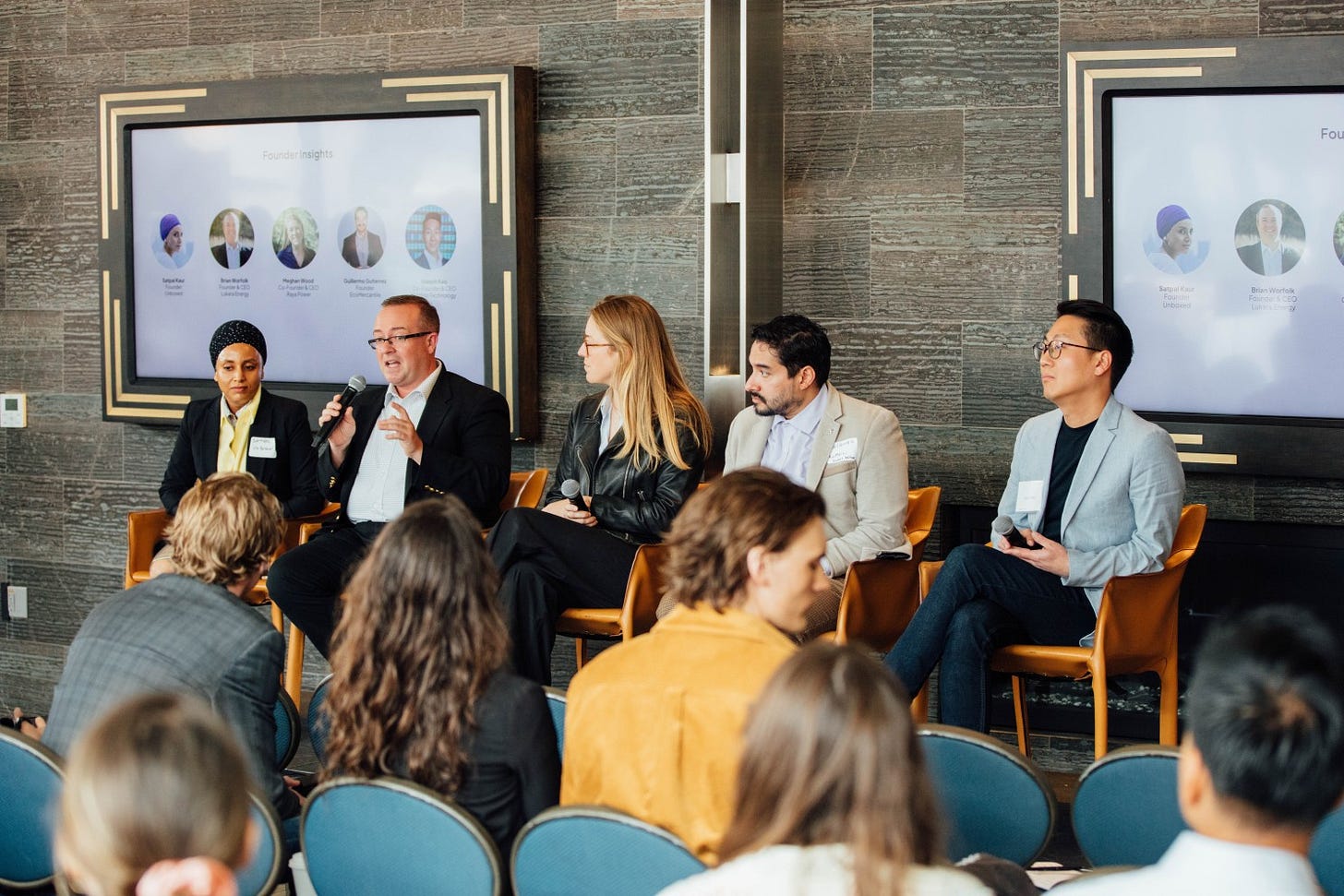
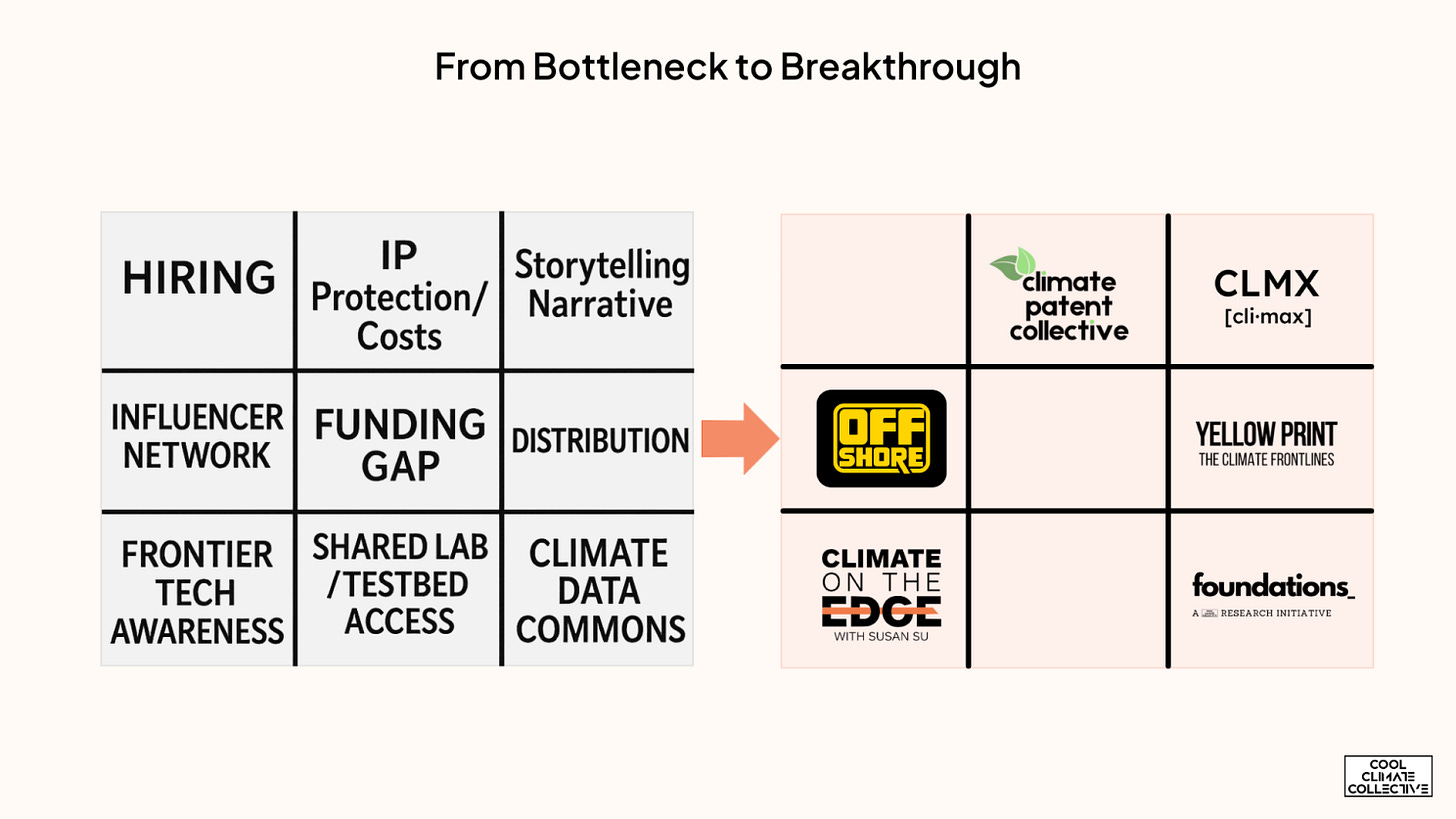





Till Trump goes, all climate action will be hamstrung. Getting rid of him is the priority for climate change adaptation.